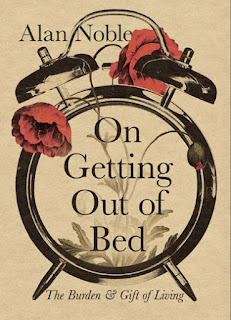"You Are What You Love" by James K. A. Smith. A Review
You Are What You Love: The Spiritual Power of Habit
James K. A. Smith
Brazos Press
Baker Publishing Group
6030 East Fulton Road
Ada, MI 49301
6030 East Fulton Road
Ada, MI 49301
http://bakerpublishinggroup.com/brazospress
ISBN: 9781587433801; $19.99; March 2016
Reviewed by Rev. Dr.
Michael Philliber for Deus Misereatur
The ancient
essayist astutely quipped, “Keep your heart with all vigilance, for from it
flow the springs of life” (Proverbs 4.23). That truism surfaces in story form
and didactic instruction throughout Scripture, and is substantiated when
raising our children, supervising employees or shepherding parishioners: what has
your heart rules your life. This is the central emphasis in the newly published
224 hardback, “You Are What You Love: The
Spiritual Power of Habit” by James K. A. Smith, professor of philosophy
at Calvin College in Grand Rapids, Michigan, accomplished author and editor. This
short work appears to be a compression and reworking of his larger “Desiring
the Kingdom” to make it more accessible for busy pastors and disciples.
The
heart of “You Are What You Love” from which flow the springs and chapters is
the importance of discipleship. For Smith, discipleship has far less to do with
the cognitive, and more with the God-storied, Gospel-shaped affections and perceptions
where our loves and longings are aligned with Christ’s. Discipleship is “to
want what God wants, to desire what God desires, to hunger and thirst after God
and crave a world where he is all in all” (2); it is a “rehabituation of your
loves” (19). And this rehabituation comes through the character-inscribing “rhythms
and routines and rituals, enacted over and over again” that embed a
heart-disposition that leans into God’s reign (Ibid.). These rhythms, routines
and rituals come in habit-forming, love-molding liturgies.
The
greater flow of the book expounds the importance of traditional Christian
liturgy, and explores rival liturgies in the marketplace, some youth
ministries, vocational environments, wedding arrangements, etc. Smith’s
perceptive investigation of these secular liturgies is quite insightful and
handy for thinking through the ways our affections and hearts are being molded
to love lesser things, alternative views of the good life, and opposing kingdoms.
According to Smith, through these everyday rituals and practices “I’m covertly
conscripted into a way of life because I have been formed by cultural practices that are nothing less than secular
liturgies. My loves have been automated by rituals I didn’t even realize were
liturgies” (45).
Yet the
weight of “You Are What You Love” delves into the importance of Christian
liturgy in re-accustoming our loves and longings in the right direction. The
church “is the place where God invites us to renew our loves, reorient our
desires, and retrain our appetites” because the church is “that household where
the Spirit feeds us what we need” and we graciously become a “people who desire
him above all else” (65). Therefore, the church’s liturgies are highly essential
for discipleship, because “Christian worship is the feast where we acquire new
hungers – for God and for what God desires – and are then sent into his
creation to act accordingly” (Ibid.). This premise leads the author to make a significant
case for well-rehearsed and historical liturgies, rather than the new and novel.
In challenging the hankering for the innovative, Smith stresses that we “keep
looking for God in the new, as if grace were always bound up with “the next
best thing,” but Jesus encouraged us to look for God in a simple, regular meal”
(67).
But the
author recognizes this emphasis on Christian liturgy as a primary practice of heart-shaping,
disciple-making, will evoke surprise and skepticism due to many readers’ experiences.
Smith spends time divulging how many churches have re-vamped their liturgies
into passive entertainment, or an expressivist endeavor. The corrective is to
reclaim the gift of worship and the recognition that the main agent in worship
is God himself. In classic form, worship “works from the top down….we don’t
just come to show God our devotion and give him praise; we are called to
worship because in this encounter God (re)makes and molds us top-down. Worship
is the arena in which God recalibrates our hearts, reforms our desires, and
rehabituates our loves. Worship isn’t just something we do; it is where God
does something to us” (77). In being
reclaimed by historic Christian liturgy, we find that worship “that restores us
is worship that restories us” 95). It draws us back into God’s story, week
after week, re-grounding and re-immersing us into God’s world reclamation
project.
“You Are
What You Love” is a treatise about the heart, to help disciples learn to guard
their hearts. It is insightful, instructive, investigative and inducing. This work
is ideal for an elder board to read together as they think through – or rethink
altogether – the why and way of Christian worship and their task of the care of
the souls given to their charge. Pastors and parishioners alike would benefit
greatly from probing the leaves of this manuscript. Also, church planters,
missionaries, and church revitalizers will find their time spent reading this
material well worth it. This is a must-read for anyone serious about church,
worship, and disciple-making.
Thanks to Brazos Press
for providing, upon my request, the free copy of “You Are What You Love” used
for this review. The assessments are mine given without restrictions or
requirements (as per Federal Trade Commission’s 16 CFR, Part 255).




Comments